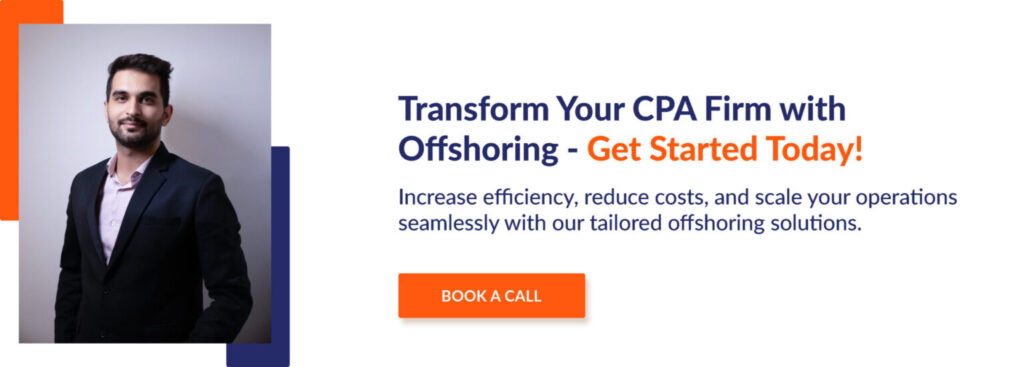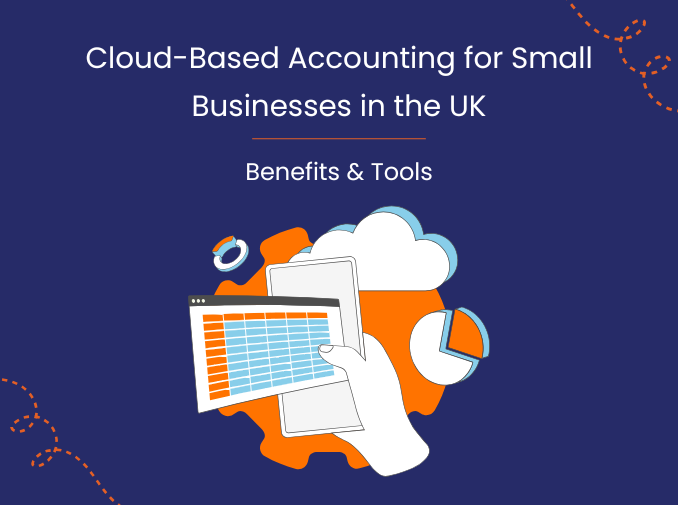If you are a small business in the UK with an annual earning of £30,000 (2025-2026), you are required to create, store, and maintain digital records of your income and expenses. According to HMRC’s new legislation, Making Tax Digital (MTD), all UK-registered businesses must submit their Value Added Tax (VAT) through HMRC-approved software by April 2026.
During this period, to keep pace with HMRC’s ever-evolving policies, business owners must stay updated on technologies and accounting tools that ensure their tax obligations and those of their clients are met.
This blog covers everything you need to know about how cloud-based accounting is an ideal solution for small businesses in the UK; helping them not only comply with regulations but also enabling accounting firms to work more efficiently, securely, and be prepared for the future.
How does Cloud-based accounting help small businesses
Cloud-based accounting, as revolutionary technology, has completely transformed the accounting industry worldwide since its introduction in 1999. Small businesses have experienced exponential growth in their operations, thanks to the flexibility, accessibility, and high security provided by cloud-based platforms.
Here are some ways cloud accounting benefits UK small businesses:
- Cloud-based software simplifies managing your Tax Schemes, like Flat Rate, Cash, or Annual Accounting, by automating calculations. It ensures precise calculations for any scheme, applies the correct rates, and generates reports swiftly, saving valuable cost and time.
- A key feature of cloud accounting software is enabling real-time collaboration with your accountant. By securely sharing access, accountants, bookkeepers, or other relevant parties can view the data and perform their tasks while working together in real-time, allowing you to stay up-to-date with your business’s financial activities at all times.
- HMRC is notorious for frequently updating its policies and regulations. With cloud-based accounting tools that update themselves automatically in the background, small businesses can automatically stay current with changing tax rates and rules. This enables business owners to focus on growing their business instead of manually adjusting their operations.
- You don’t have to worry about manually paying because a cloud accounting system integrates seamlessly with your local payroll. It doesn’t matter if it’s PAYE, pensions, or National Insurance; all of your business’s financial transactions are handled alongside your accounting.
- Maintain secure, compliant records that are consistently organized and audit-ready throughout the year, reducing stress and the risk of mismanagement during year-round audits.
Key factors to consider when choosing cloud accounting tools for UK small businesses
With the market for cloud-based accounting software growing rapidly, reaching $5.39 billion by 2025, there are many options to consider. However, for businesses that want to operate as efficiently and productively as possible, it is essential to select the cloud system that best fits your organization’s structure and functions.
Especially for small businesses, it is crucial to receive the service that offers the highest value and quality for their organisations.
Here are some questions to ask before considering a cloud accounting service:

What are your business’s needs?
It is essential to identify which tasks in your business are worth automating, whether it’s administration, financial reporting, payroll, or analytics. Ensure the service you select includes features that meet your business needs and offer additional benefits like regular, automatic updates to adapt as your business evolves or expands.
How cost-effective is it?
Before choosing a cloud service, compare the costs of different options to find the most cost-effective one for you, based on the features it offers and how well they meet your business needs. Make sure to review all terms of service carefully, including subscription fees, extra charges, and potential savings from automation.
How does the accounting software integrate with other software?
When buying a cloud-based accounting system, it is crucial to verify its compatibility with the tools you already use in your business. Talk with your service provider about how it connects with other standard business software. Incorrectly choosing a system can lead to the unnecessary task of manually transferring data to different software, wasting valuable time and energy.
How user-friendly is it?
Having a user-friendly interface saves time in training and learning with updates, making it stress-free to use, especially for new employees. It also simplifies onboarding clients into the system.
Most providers offer specific free trials and consulting sessions before selling the full version. Choose one with a straightforward user interface that includes all the features your staff needs to work efficiently and makes the process easier for clients.
What Customer Support do they offer?
When using a cloud-based accounting service, it is common to need assistance during operations. In such cases, it is crucial to have a provider that offers 24/7 customer support and resolves inquiries quickly. Look for specific reviews about the quality and speed of the support.
Which software does HMRC approve of?
As mentioned earlier, HMRC has recently required all business owners to submit their VMTs electronically using HMRC-approved software. Now that you understand what to consider before choosing a cloud-based accounting system, let’s look at ten cloud accounting software approved by HMRC.
- Absolute Accounting Software Limited
- BaseTax Limited
- Crunch
- FreeAgent Central Ltd
- Forbes Computer Systems Ltd
- Quality Management Software Ltd
- Sage UK Ltd
- Taxzap
- Thomson Reuters
- Xero
Conclusion
Cloud-based accounting has shifted the entire accounting practice for small UK businesses. As Making Tax Digital deadlines loom and HMRC regulations continue to change, selecting the right accounting software now will help you stay compliant and gain a competitive advantage.
Small businesses in the UK must pick an HMRC-approved platform that matches their business size, supports UK-specific tax schemes, and provides reliable customer support. Making the switch early will lead to a smoother transition, reduce last-minute compliance concerns, and prepare your business for the future.


